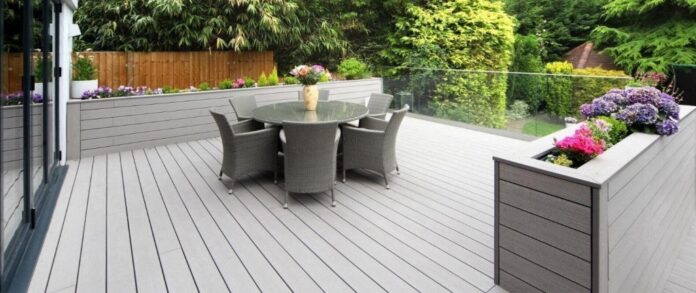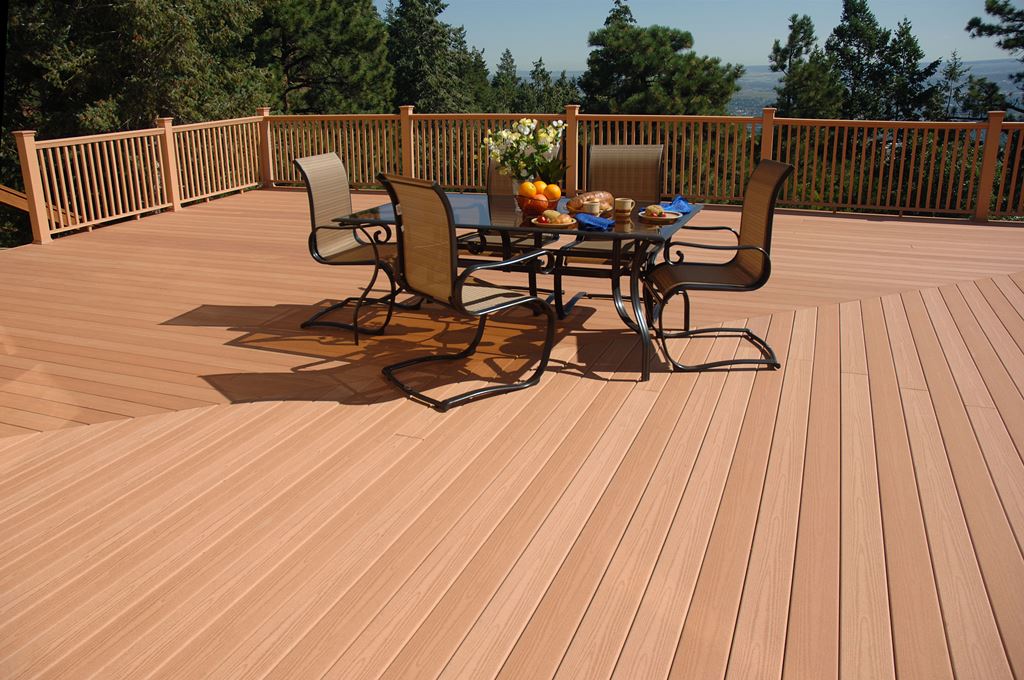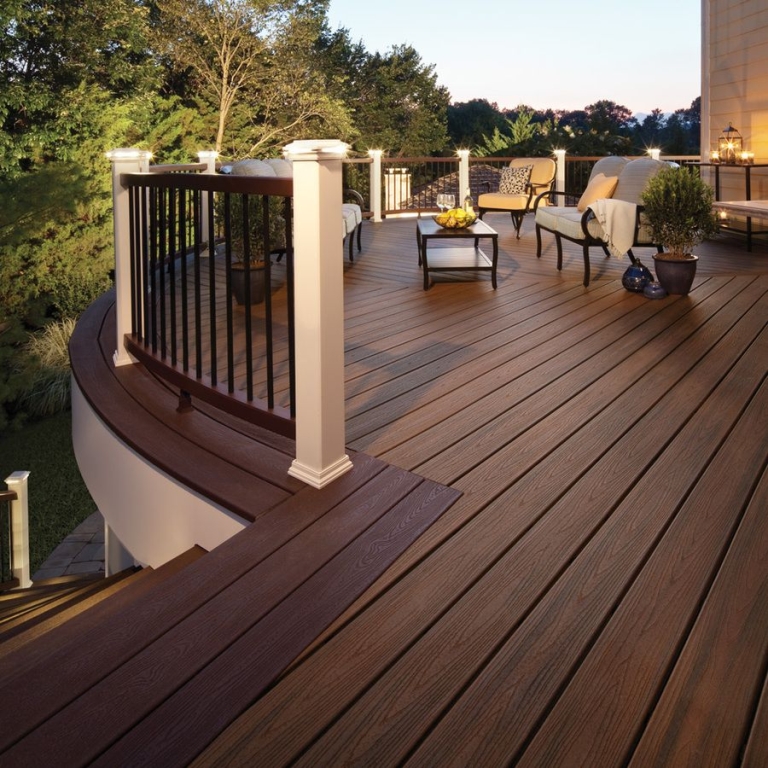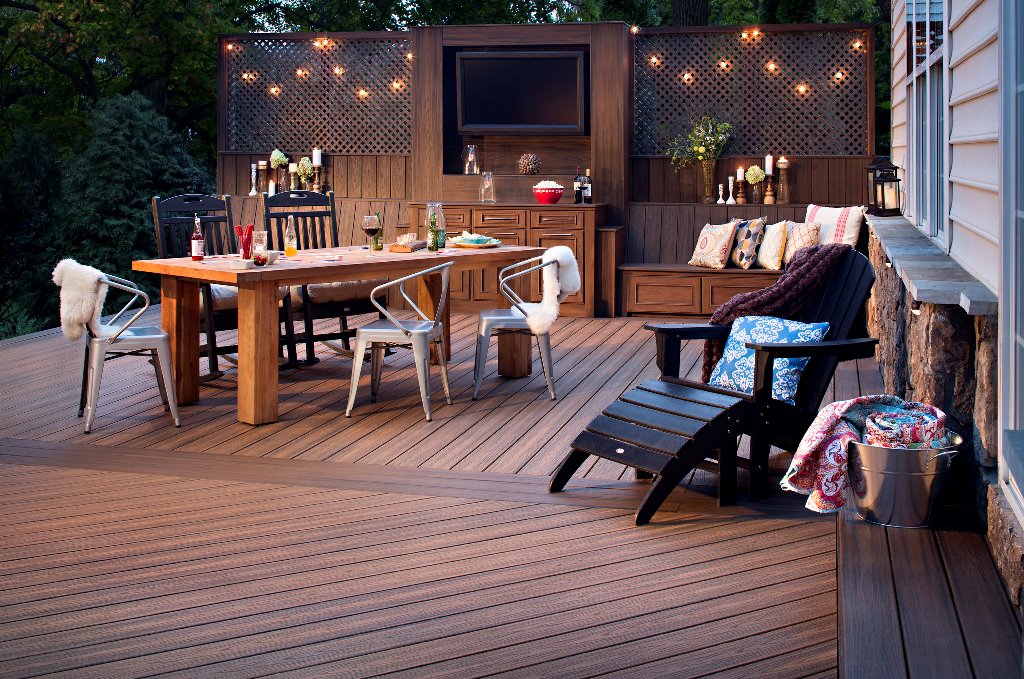If you’ve only just started shopping around for decking boards, you might be surprised by the wide range of options available to you. Decking comes in a variety of different materials, and while hardwood timber decking is the traditional choice, composite decking—available from companies like DeckPlus—is an increasingly popular alternative with many advantages to recommend it.
What’s the difference between hardwood decking and composite decking?
Whereas hardwood deck boards are made of wood only, composite decking is made using a combination of real wood and synthetic materials.
You might think that choosing composite decking over tropical hardwood would seriously diminish the appearance of your garden deck. But you’d be wrong—modern manufacturing techniques mean that quality composite deck boards are often barely distinguishable from their 100% wood counterparts.
So what reasons are there to choose composite decking over hardwood decking?
1. Composite decking requires less maintenance.
As a general rule, hardwood decking must be stained approximately once a year to keep them looking good. Failure to look after your timber boards will result in a very tired-looking deck.
Composite decking doesn’t have to be stained; in fact, good-quality composite boards require virtually no maintenance whatsoever. An occasional clean will be enough to keep your garden deck looking gorgeous for years!
2. Composite decking is easier to install.
Installing wooden deck boards can be an exhausting and very labour-intensive task. You may have to invest in specialist tools, and it can be very slow work if you want to minimise waste and achieve a nice, smooth look.
Composite wood decks tend to look just as good with far less effort. A variety of user-friendly fixtures and fittings are available to help you ensure that your composite deck looks just how you want it.
3. Composite decking is less likely to splinter.
One of the main hazards of hardwood decking is that the boards may crack and splinter over time. This can be unsightly, but more importantly, it can be dangerous – especially if you like walking around in bare feet, or if you have children and/or pets in your home!
Most high-quality composite decking is designed to be splinter-free and exceptionally durable in general, so you shouldn’t have to worry about this problem.
4. Composite decking offers better slip resistance.
Here’s another potential risk to watch out for: hardwood decking can become quite slippery when wet. This is especially true if algae begins to grow on the surface of the boards.
Most quality composite decking products are designed to offer a high level of slip resistance, reducing your risk of falling and hurting yourself.
5. Composite decking is often the greener choice.
Many timber decking products are made using tropical hardwood, making the wood decking industry a contributor to deforestation. There is some evidence that wood collected using illegal logging practices is sold as ‘ethical’ in the UK and other European markets.
As with most of the benefits described here, it does depend on where you buy your decking, but composite boards are often made using recycled wood from other industries. Furthermore, since composite decking doesn’t have to be stained, you don’t have to worry about releasing any harmful chemicals into the environment when you’re looking after your deck.





















